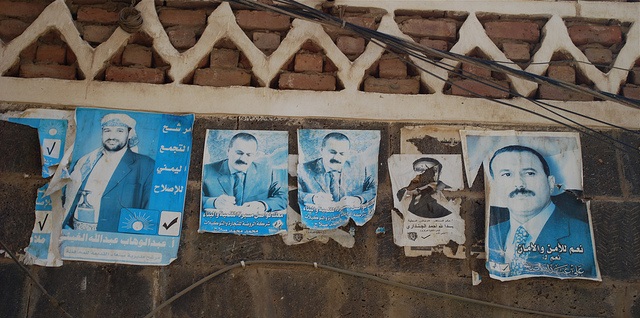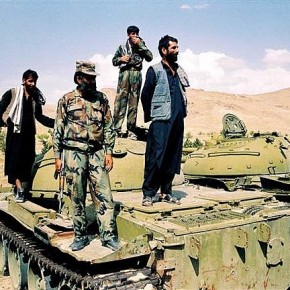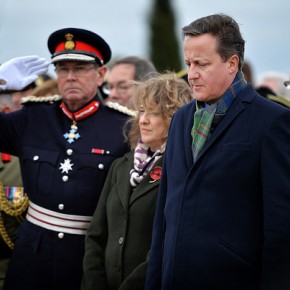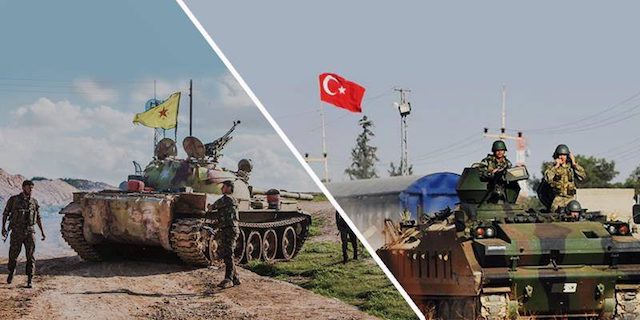Hussein Badreddin al-Houthi, father of the ongoing Houthi revolt, demanded greater autonomy and influence for his family as spiritual leaders among Yemen’s Zaydi Shia community. President Ali Abdullah Saleh refused to accept these demands, not wanting to lose power to a rival family.
The Salehs genuinely feared the popularity that the leader carried among his reformist movement. It was fairly clear to them that al-Houthi was preparing to declare himself as a new Zaydi Imam, although he personally denied such aspirations.
The Salehs soon appealed to Riyadh for support against the Houthis (no mean feat for a family who had previously been counted among Saddam Hussein’s dear allies), a move that further upset the Houthis since they disliked how dependent the Salehs were becoming on the Saudis. In turn, President Saleh claimed that the Houthis were Iranian puppets.
The extent of Iranian support, or even a clear strategy, towards the Houthis remains unclear. Iranian assistance does exist beyond the mere moral support Tehran usually says it is giving, though. Sudan has helped Iran smuggle weapons to the Houthis, for starters, and Eritrean smugglers may be doing the same, taking advantage of the chaos that has engulfed the country.
Most recently, Iran opened up an air link to the Houthis when it chose Mahan Air to make an inaugural flight to Sana’a, billed as a mission of mercy. Mahan Air was an interesting choice, given that the airline’s planes have been caught running guns to Syria before. This is a favored Iranian tactic in Iraq and Syria, but if Iran does intend to open another front against the Saudis, it is not really in a good position to maintain it at the same level it maintains its friends’ armories in Syria, Lebanon, and Iraq. One does not expect to see vintage T-72s imported from the Islamic Republic leading Houthi columns down to Aden. Gaza would probably be a more apt comparison for the extent of Iranian support, with the smuggling in of small arms and missiles by land or sea.
It will, despite the blockade, probably prove easy for the Houthis to obtain weapons from abroad, using existing smuggling networks in the country. These are both their own and those of their sometimes allies – remnants of the security services loyal to the Saleh family. With this in mind, of course, Riyadh does not trust the Salehs they once backed anymore, having realized how the family operates.

The Houthis and Salehs have fought or worked together, on and off, for decades. The Salehs still toy with the idea of using the Houthis to claw back into power, and the latter has hardly rejected the Salehs’ support out of hand despite the bad blood. The Houthi revolt that began in 2004 had elements of an internal Zaydi Shia conflict, between the aristocratic al-Houthi family and the less pedigreed Salehs. Under the monarchy, a Saleh could never have become king by lawful succession, but an al-Houthi could, which is part of the reason the former was so paranoid.
This dynamic was upended in September 1962, when Abdullah al-Sallal, son of a blacksmith (and also a Zaydi Shia), led a coup against the monarchy. The Nasserist order seemed to offer more opportunities for advancing the country and the putschists’ own authority than the Imamate. After that event, the equally upstart Salehs advanced their power through the republican armed forces of North Yemen, and worked to dismantle the networks and institutions that had historically discriminated against them as “lower class” Zaydi. The Houthis, for their part, resented the Salehs’ role in all of this, since they were historically privileged them along with a few other families.
Not that this meant there was much unity among the “upper class” families on one side of the divide or the other. Yemen is a polity where local actors are accustomed to significant autonomy. There is also precedent for division. Ethnic Yemenis changed sides frequently during the 1934 Yemeni-Saudi War for control over the southern end of the Hejaz. The al-Wazir family, who had served the royal family as governors and generals since the 1800s, carried out the 1948 coup that ended in the death of the Zaydi Imam at the time. And in the 1960s, the impeccably credentialed al-Iryani clan came to side with the republicans after initially resisting them with other Zaydi families. There are always intrigues in the country.
The point is that while the claims of foreign backing have always been true to some extent, they key word is “some.” The Houthis never had the level of Iranian backing the Salehs said they did, at least according to the U.S. government’s secret diplomatic cables. And the Salehs were never as “pro-Saudi” as the Houthis claimed. The Saudis (and the Americans) were merely means to retain power, and the political “arm” of the northern Sunni Islamist movement fighting the Houthis also openly opposed the Salehs. The ratcheting up of these claims, though, served a propaganda purpose: Yemenis have never much cared for outside interference and especially resent the overbearing behavior of their northern neighbor. It has also allowed the Salehs and Houthis to hide that absurd familial politics, and accompanying social and political tensions, are devastating the country far more than we’d care to imagine.
Photographs courtesy of Kate Nevens and AJTalkEng. Published under a Creative Commons License.





